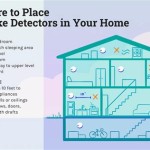Allergies In Bedroom At Night
Allergies can make it difficult to get a good night's sleep. When you're allergic to something in your bedroom, such as dust mites, pet dander, or mold, your immune system overreacts and produces antibodies called histamines. These histamines cause allergy symptoms such as sneezing, a runny nose, itchy eyes, and a scratchy throat.
If you're experiencing allergy symptoms at night, it's important to identify the allergen that's causing them. Once you know what you're allergic to, you can take steps to reduce your exposure to it and improve your sleep quality.
Common Bedroom Allergens
The most common bedroom allergens include:
- Dust mites: These tiny creatures live in bedding, carpets, and furniture. They feed on dead skin cells, and their droppings can trigger allergies.
- Pet dander: Pet dander is made up of tiny flakes of skin that are shed by animals. It can be a major allergen for people who are allergic to pets.
- Mold: Mold is a fungus that can grow in damp areas, such as bathrooms and basements. It can release spores into the air, which can trigger allergies.
- Pollen: Pollen is a fine powder that is produced by plants. It can be brought into the bedroom on clothing or shoes, or through open windows.
Symptoms of Bedroom Allergies
The symptoms of bedroom allergies can vary depending on the allergen that's causing them. Common symptoms include:
- Sneezing
- Runny nose
- Itchy eyes
- Scratchy throat
- Congestion
- Coughing
- Wheezing
- Difficulty breathing
How to Reduce Bedroom Allergies
There are a number of things you can do to reduce your exposure to allergens in your bedroom and improve your sleep quality. These include:
- Use a dust mite cover for your mattress and pillows.
- Wash your bedding in hot water (at least 130 degrees Fahrenheit) every week.
- Vacuum your bedroom regularly, including under the bed and furniture.
- Keep your humidity levels below 50%.
- Use a dehumidifier in your bedroom to remove excess moisture.
- Clean your bathroom and kitchen regularly to prevent mold growth.
- Avoid bringing pets into your bedroom.
- Keep your windows closed during pollen season.
If you're experiencing allergy symptoms at night, it's important to see a doctor for diagnosis and treatment. Your doctor may prescribe medications to relieve your allergy symptoms and improve your sleep quality.

5 Reasons Your Allergies Are Worse At Night Geelong Medical Health Group

Why Are Allergies Worse At Night Contributing Factors And Treatment

Why Do My Allergies Get Worse At Night Northeast Allergy

Why Are My Allergies Worse At Night

Why Are My Allergies Worse At Night

Allergies At Night Why Do I Sneeze More Bedtime

Allergies Worse At Night Causes And Treatment Well Good

Why Do Allergies Act Up At Night How To Soothe Nighttime Vanquish Headache Relief

Why Are Allergies Worse At Night Total Point Emergency Center

Why Do My Allergies Get Worse At Night New Jersey
See Also








